Time for Action
Friday, August 29, 2014
_824_565_85_c1_c_c_0_0.jpg)
I’ve gotten lots of calls and message from people around Nepal asking my perspective on flood relief. Here are my thoughts as well as some information I’ve gathered after getting to see the camps and talking to as many victims as possible these past few days.
The flood victims are not scared of the short term. They seem patient, organized, and understand that things will take time. They seem willing to wait it out. This doesn’t mean we shouldn’t work our hardest to get them out of those camps and back on their feet. I’m just saying I didn’t sense or hear even an ounce of outrage or anger which surprised me because I was trying to put myself in their shoes and I don’t know how I would fare out there. The sense I got from the victims was that yes, it would be really nice if they had more than some leaves to sleep on and a piece of plastic over their heads but these are people who, even before the flood, were already living way below the poverty line. These people are strong, brave, resilient, hard working, almost super human. They know what it’s like to live in a mud hut without running water or power because that how they've always lived. They know how to work long days harvesting a rice paddy and are used to the hours and hours of walking to get wood and cut grass for the animals in the jungle. Many of the people in the camps are still working. If you ask them what they need, they’ll ask for the basics, clothes, a mat to sleep on, their children to be able to go back to school. They are so humble and so appreciative of even the smallest bit of support.
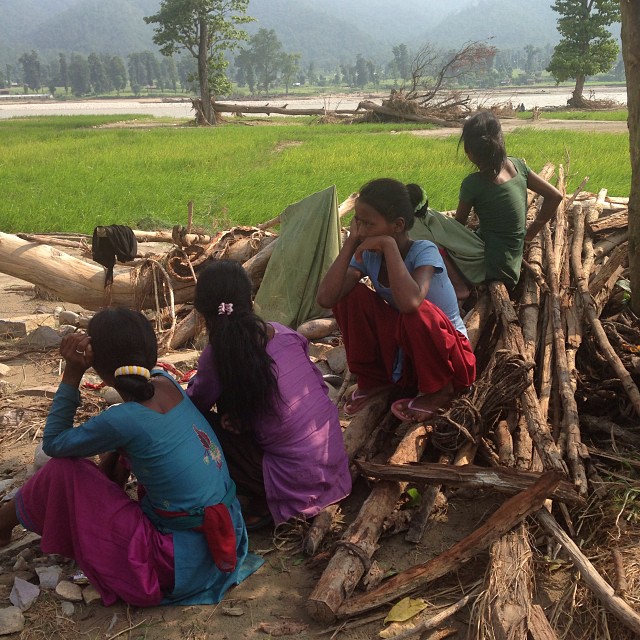
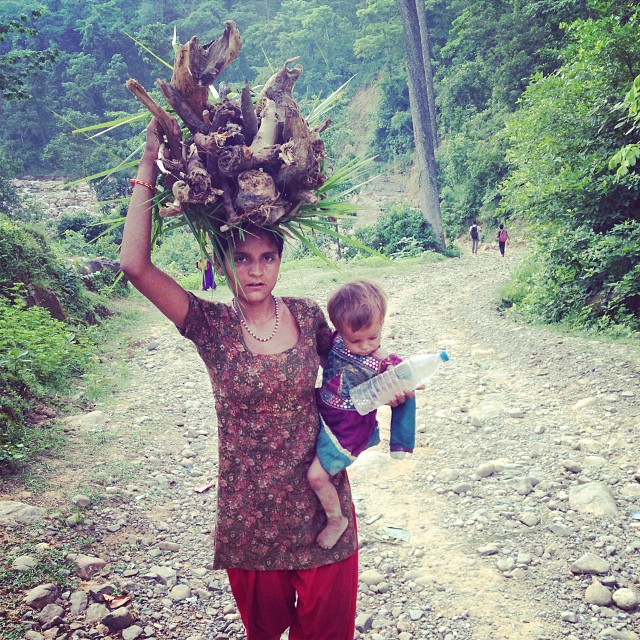
Their number one concern and fear is the long term. They’re scared about their livelihood and what the future holds. A mom with a newborn that we picked up from a jungle camp was the most worried about the fact that her cow was gone because she and her husband earn some money by selling the extra milk. People are REALLY concerned about their land that has been washed away where they grow food for their families. A villager who walked with me to one of the remote camps was worried that the roads, bridge, and irrigation system that has been wiped out. These were projects that took years and years to achieve and are still a work in progress.
The camps are tired of people showing up asking for the same information over and over again but they're still really gracious about it. Every one’s asking the same things. How many people lost their homes, land, lives? If you want to get information, and need to be on the ground to gather it, totally understandable, it really helped us to see the crisis first hand -- but please read reports provided by the CDO and Red Cross ahead of time so you’re not going in blind. And if you make a promise of helping, do it and do it immediately and bring something with you when you go. The camp in Giri Ghat said they were frustrated that so many people were showing up in vehicles to “see” the camp and not bringing or doing anything. 10 days in, they still had nothing.
Many of the victims haven’t had time to grieve. I talked to a mother who lost her two daughters, and a husband who lost his wife and ten month old baby. They’re in such survival mode, I worry that that they haven’t had time to process all that has happened. One mother of four woke up one of the days immediately after the floods and jumped into the river. She died from suicide. The floods have taken enough lives. Let’s not let people die of hopelessness and depression. Our Women’s Center hired two more mental health counselors this month and we encourage others to invest in mental health. Also go to the camps, teach the kids a lesson, play soccer with them. Give them something to do or something to smile about. They're kids and they're bored.
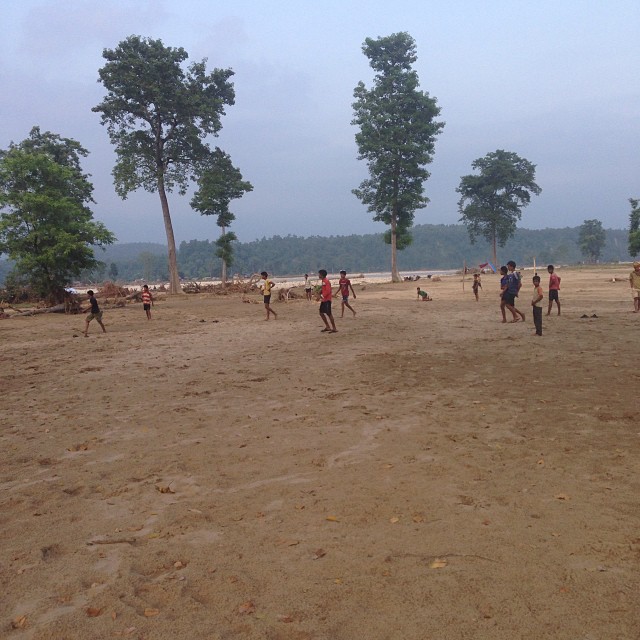
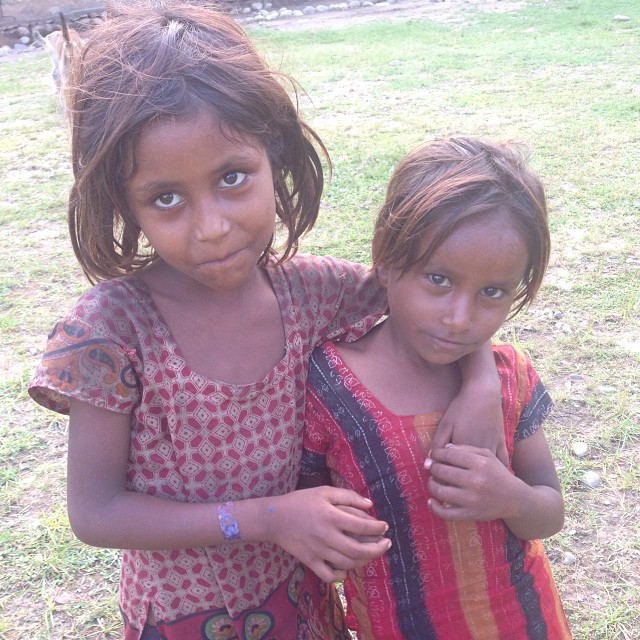
NGO’s have mobilized. I saw UNICEF bags as well as the presence of CARE and Red Cross. I believe most of the food drop offs are coming from the Government and WFP. I’ve run into Save the Children, KIRAK, INF, and GIZ among others both in the field and across the tables at meetings. Bravo to all of you. This what we’re here for. Let’s keep turning it up and keep talking. Right now I still only seen enough food for 4-6 days at a time, a piece of plastic and a water bucket for each victim family at only some of the camps.
I’ve heard lots of talk about people worried about “even distribution” and a “one door system” so efforts aren’t duplicated. I totally get it. Collaboration is perhaps the most important thing that is needed right now. But everyone is so concerned about being fair and figuring out what the needs are that it's taking wayyyy too long to get people basic support. In fact, when we did a drop off in Giri Ghat, THEY were the ones who encouraged us to get to the camps that didn’t have road access because they were worried about them too. I didn’t sense jealousy or competitiveness. I just sensed desperation. Nepalese understand that they are all in the same boat and they’re used to life without handouts or support so every little thing we can give means a lot to them.
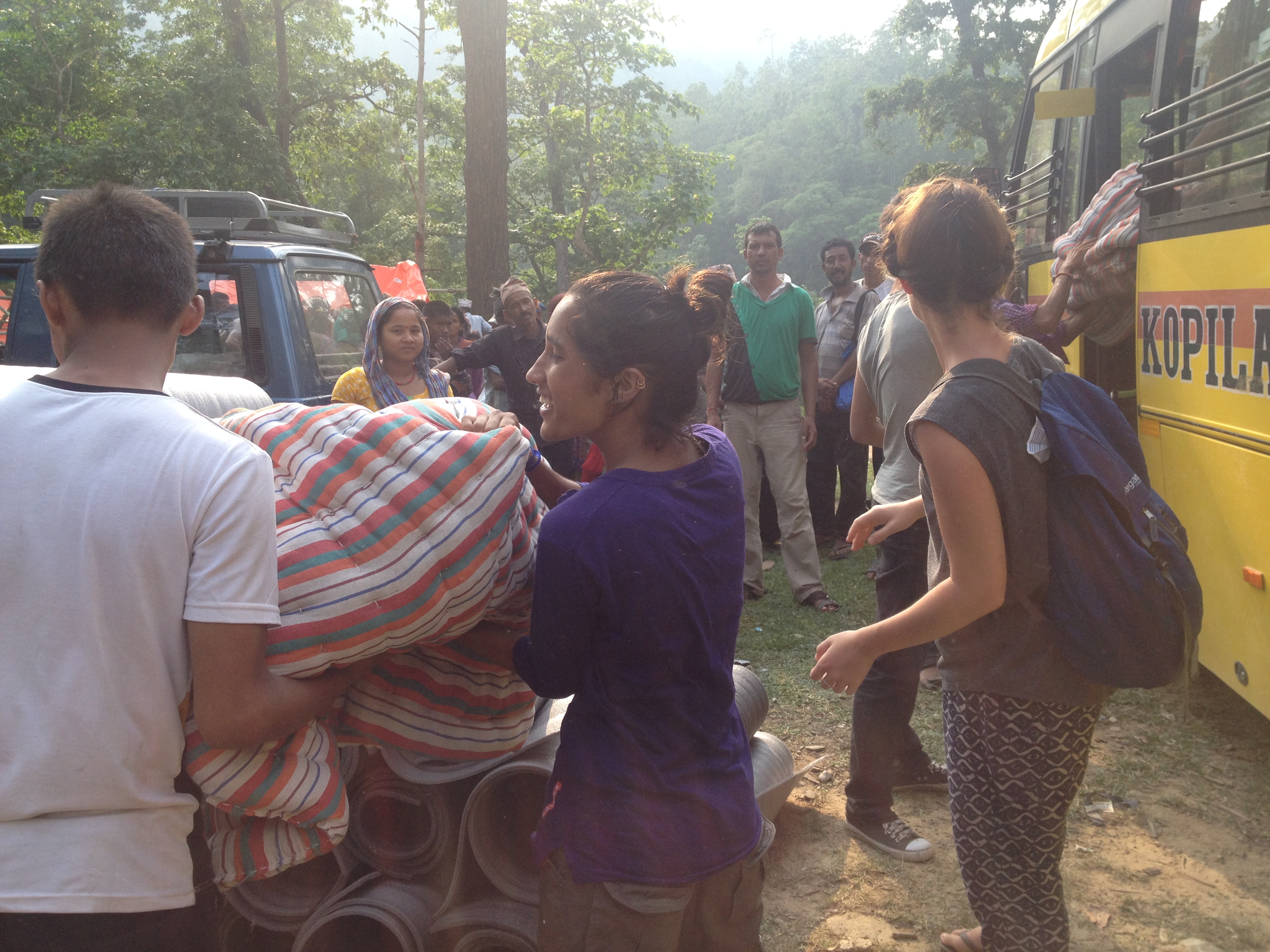
In my opinion, and in the opinions of the disaster relief experts I’ve talked to, it’s okay if one camp gets an extra mosquito net or two. Or if one family at one camp gets two blankets and another gets three. There will always be a small percentage of people that “take advantage” or want to take a bigger slice of the cake but the camps themselves are focused on getting things given out fairly so all you need to do is drop stuff off and trust them that they know who needs what. I’ve been incredibly impressed with the way BlinkNow’s donations were utilized in the camps. If you have resources, time to start pumping them out. Mobilizing the economy always helps too.
I still haven’t seen a single mosquito net and it only takes about 5 minutes in the middle of the jungle to be eaten alive. Anna came with me to a camp and she is now covered in welts. I’ve never been an organization that was about “giving stuff” or handouts, but seriously if there is a time for charitable giving in the form of in-kind donations, IT IS NOW!!! I think shipping things from the U.S. and abroad will take too much time and be a waste of resources, so we should rely on Nepali citizens in country.
***If you want to give clothes, chappals, mosquito nets, dishes, mattresses, THEY WILL be used and they are needed & wanted & appreciated. When you go to the camps it makes you feel like even five t-shirts back home in your drawers are too much.
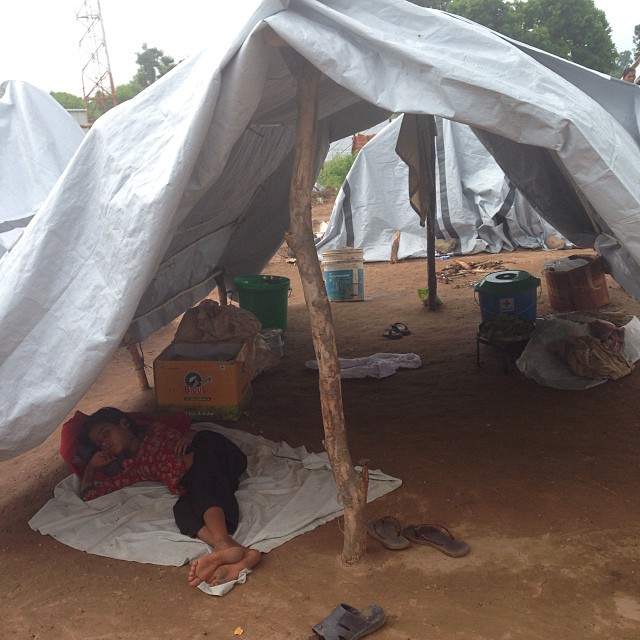

We all know it takes lots and lots of time to get things done in Nepal, it’s the nature of a country going through a major government transition. I love this country and it's people with all my heart, but things take time here. There is some major relocating to do. Villages on the river banks are no longer safe. Land is gone. Schools are gone. We had MAJOR work to do in these areas even before the floods and we have major work to do now. Extreme poverty in Nepal is a huge problem and this tragedy has made us stare it in the face. A country is only as strong as it's weakest link. We're all on the same team. Let's keep working together.
 Items needed:
Items needed:
1) Plastic tarps
2) Water tanks and filters, containers
3) Food (rice/dhal, vegetables, salt, oil)
4) Mosquito nets
5) Bedding (bedsheets, mattresses, mats to sleep on)
6) Cooking utensils (plates, bowls, pots, pans, cookers)
7) Soap and toiletries
8) Clothing (anything and everything)
9) Your time - go play with the kids!
To donate items locally in Surkhet:
- Drop absolutely anything you want us to distribute at our house in Bhairabsthan-4, Surkhet.
To donate from Kathmandu:
- This group has been organizing the donation effort: Nepal Early Disaster Help Network
To donate from outside Nepal:
- Monetary contributions are best: https://www.blinknow.org/donate